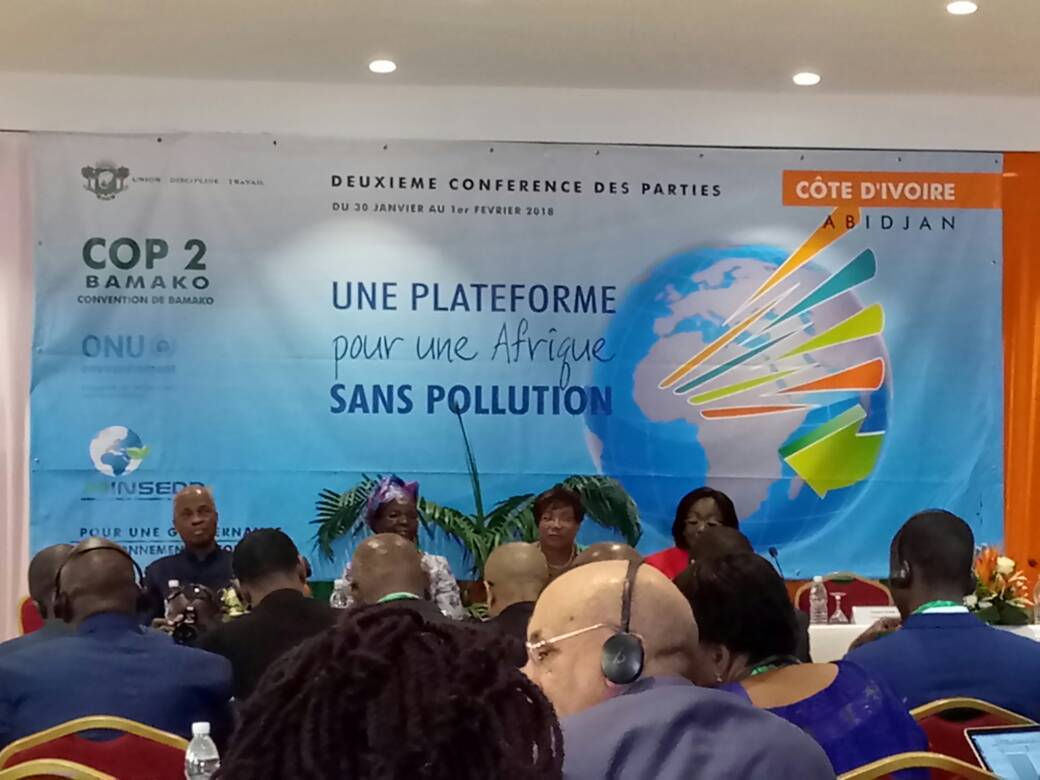
By Atayi Babs
Our climate is changing and will continue to change into the future. Over the past few decades in Africa, Europe, America, Australia and Asia, temperatures have increased, sea levels have risen, and we have experienced more heavy rainfall and catastrophic weather events.
The Flooding and severe storms that struck the UK in the winter of 2013/14 around 7,000 businesses flooded. Insured losses to business property alone ran to almost £200 million. Climate projections and IPCC reports show that these trends are set to continue into the future.
The impacts of climate change are not hypothetical to be worried about far in the future. The last several IPCC reports – the international scientific assessments on climate change done through the U.N. – have made it abundantly clear that impacts are happening now. And even more recent science has shown that the probabilities of even individual extreme weather events (e.g., heat waves) can be attributed to climate change.
The international and domestic U.S. scientific assessments have concluded that climate impacts are disproportionately felt by poor populations both among and within countries – including our own. But such impacts significantly hamper poor countries, which tend to be very dependent on their agricultural sectors, have larger proportions of poor people and typically do not have resources available for recovery from climate-driven damages.
Challenges
In addition to popular challenges of inadequate flow of finance for adaptation and mitigation measures, absence of capacity building and technology transfer, the recent US decision to pull out of the Paris Agreement has become a major challenge as it implies that the U.S. will refuse to make any additional contributions to the U.N. Green Climate Fund.
The fact that the world’s largest economy and the largest per capita emitter will decline to take on policies to curb greenhouse gas emissions and simultaneously refuse to contribute to a fund largely devoted to adaptation measures in the world’s poor countries is dangerous and unprecedented.
The desires in the developing world to improve quality of life in a sustainable way will not go away. Programs such as the U.N. Sustainable Development Goals are evidence of a deep commitment to those improvements. But with the U.S. decision to abandon the Paris accords, delivering on those commitments just got significantly more difficult.
Closely linked to this is the fact that many governments are foot-dragging on the path to clean energy transition and climate resilience. Big corporations and economic lobbies are doing everything they can to avoid the climate-resilient alternatives, because they threaten their profit and power.
Worse still, they are forcing us to accept their false, ineffective and dangerous solutions, such as nuclear power, biofuels, GMOs, compensation mechanisms, financialisation of nature, geo-engineering, etc. These so-called solutions maintain a model where the global North and the richest populations of the planet continue to loot the Earth and nature, concentrate wealth and destroy the environment, particularly in the South.
Climate change as an opportunity
In spite of these challenges, hope must not be lost as solutions and opportunities exist, and are already been put into practice by hundreds of organizations, of local communities, and individuals. Even better: these alternatives are building a more pleasant, closer, friendlier, and fairer society. Small-scale agriculture, re-shoring the economy, sustainable land planning, alternatives to the car-culture, energy sobriety, eco-housing, ethical finance, social and environmental conversion of manufacturing, ethical consumption, a new share of wealth and work, community support, waste reduction and recycling, preservation of common goods such as water, soil, forests, are leading the way.
The fight against climate change is not a constraint, it’s a great opportunity to build a more human future.
You don’t have to be a tech giant to embrace eco-friendly technology. Just ask Lebanon’s Arab Printing Press (APP). The company, which has 130 employees, is a prime example of the growing number of small businesses that are going green. The Beirut-based firm installed solar panels at its headquarters a couple of years ago, cutting its reliance on expensive fuel oil.
Like any disruptive force, climate change is creating opportunities for companies willing to innovate. A report by IFC, for example, found that Eastern Europe, Central Asia, the Middle East, and North Africa could support up to $1 trillion in climate-related investments by 2020.
Globally, one area especially ripe for growth is renewable energy. Countries from Honduras to India have set ambitious targets for wind, solar, and hydro-power and they’ll need private sector investment to get there. Just how widespread is the desire for clean energy? Even Saudi Arabia, home to one of the world’s biggest oil reserves, is looking to generate the bulk of its electricity from renewables and nuclear power by 2040.
We’ve already seen companies take up the mantle in Panama, where a consortium is building what will be Central America’s biggest wind farm. The 215-megawatt Penonome plant would prevent the release of 400,000 tonnes of carbon dioxide emissions per year, the same as taking 84,000 cars off the road.
Meanwhile, the private sector is playing a key role in the construction of a massive 510-megawatt solar plant in the Moroccan desert that will provide power to 1.1 million people. The project, worth $2.6 billion, could help turn the North African kingdom into a renewable energy powerhouse and serve as a model for future public-private partnerships. And in Nepal, Kabeli, the first project-financed hydropower plant in the country is expected to generate about 200 GWh of electricity, helping address the debilitating power shortages and lack of industrial progress there.
Renewable energy isn’t the only climate-related sector primed for growth. Companies can find opportunities in eco-friendly construction and in helping cities prepare for changes in climate. By 2050, more than 6 billion people will live in urban areas, creating a pressing need for a host of infrastructure services, like water and sanitation. As well, 400 million homes are expected to be built by 2020, a potential boon for construction companies that can incorporate green technology into their builds.
Finally, there are great opportunities in climate-smart financial solutions. These run the gamut from green bonds issued by governments and international institutions to micro-loans for entrepreneurs.
One lender that has gravitated towards that market is in South Africa. Sasfin Bank has created a credit line to expand lending in projects that will help small businesses in South Africa become more energy efficient and sustainable.
The Paris climate conference brought into sharp focus the hazards of runaway climate change. It is a fundamental threat to economic development in our lifetime and, left unchecked, could push 100 million people into poverty by 2030. That would undo the stunning progress the world has made in fighting poverty during the last 15 years.
Perhaps in a bid to seize this opportunity, the private sector became more visible and active in COP 21 than in any of the previous COPs: CEOs from industries as far ranging as cement, to technology and renewables stepped up their efforts to address climate change, making pledges to decrease their carbon footprint, buy more renewable energy and engage in sustainable resource management.
Global financial institutions pledged to make hundreds of billions of new investment over the next 15 years in clean energy and energy efficiency. Most prominently of all, the private sector called on governments to put in place stable, long-term regulatory regimes, including a price on carbon, that they can use to guide their companies through the transition to a low-carbon economy.
Regardless of the Paris Agreement, the fight against climate change will not be cheap. Developing countries will need about $100 billion of new investments per year over the next 40 years to build resilience to the effects of climate change. Mitigation costs are expected to be in the range of $140–$175 billion per year by 2030.
This enormous burden cannot be carried out by national governments, many of which are already struggling to make ends meet: they will need the buy-in and participation of the private sector.
It is in this light that the US intention to withdraw from the Paris Agreement should be seen as an opportunity as well as it provides other powerful nations like China with an opportunity to provide greater leadership. China is already a signatory to more than 50 international environmental treaties, including the Paris Agreement and the Convention on Biological Diversity, which has never been ratified by the US. Domestically, China has implemented numerous policies in support of its international environmental commitments. This includes setting up the world’s largest carbon trading market.
Critics will argue that China’s environmental commitments and policies, both domestically and internationally, have many shortcomings. But China has shown much greater initiative on challenges like climate change in recent years. Provided that a critical mass of other countries stand together with China, the global environmental agenda can continue to strengthen in spite of weakened US support. For example, Indonesia, Australia and many other countries have indicated that they will press ahead with the Paris Agreement together with China, regardless of what President Trump does in the coming years.
It isn’t just about national governments either.
A less environmentally minded Trump administration is an opportunity to strengthen initiatives that are independent of the US federal government. Examples include environmental commitments by subnational units of government, cities, and companies, as well as community groups. In fact, reduced US federal government support for global environmental treaties may create the space for greater experimentation, innovation and learning by actors at levels other than national government.
A sign of a greater role by non-US government actors under Trump is the surge in donations to environmental NGOs following the election result.
The next three years will be challenging. Environmentalists will need to be vociferous in raising concerns with the US government. The uncertainties of a Trump presidency call for a proactive and flexible approach that can cope with the risks and seize the opportunities. President Trump represents an opportunity to strengthen the environmental movement, not just for the next three years, but for the years after that too.
The stakes are clear
The stakes are clear: we must radically reduce our greenhouse gas emissions to avoid the dangerous threshold that leads to the point of no return for global warming and climate chaos. A massive, brutal, disruption, in such a short time-span for our climate is a challenge that humanity has never faced.
The civil society and the media must run with the mindset that a popular mobilization of citizens and taking control of the future is necessary to counter-balance the destructive efforts against nature. The commitment of everyone to the environment is crucial to facing and overcoming the climate challenge. Climate stabilization will stem from unity, from collective intelligence, from solidarity, from the thirst for social justice, from the capacity to get change moving here and now, and to initiate the clean energy transition without further delay!











